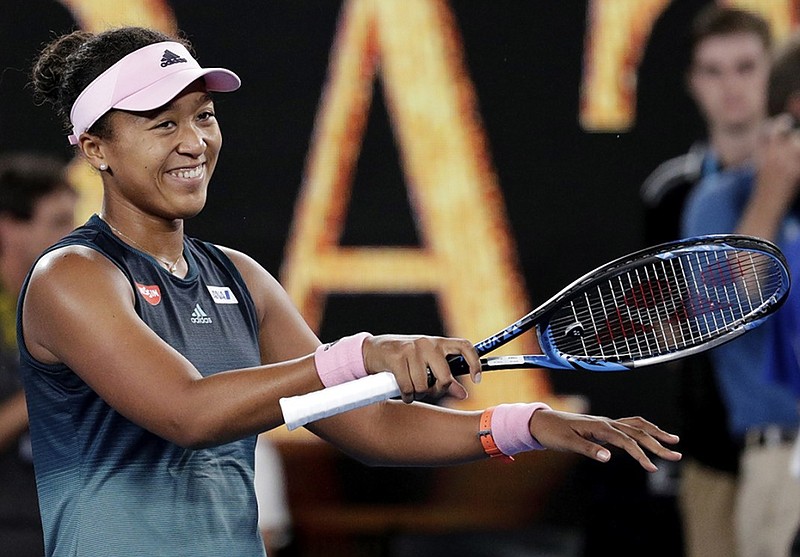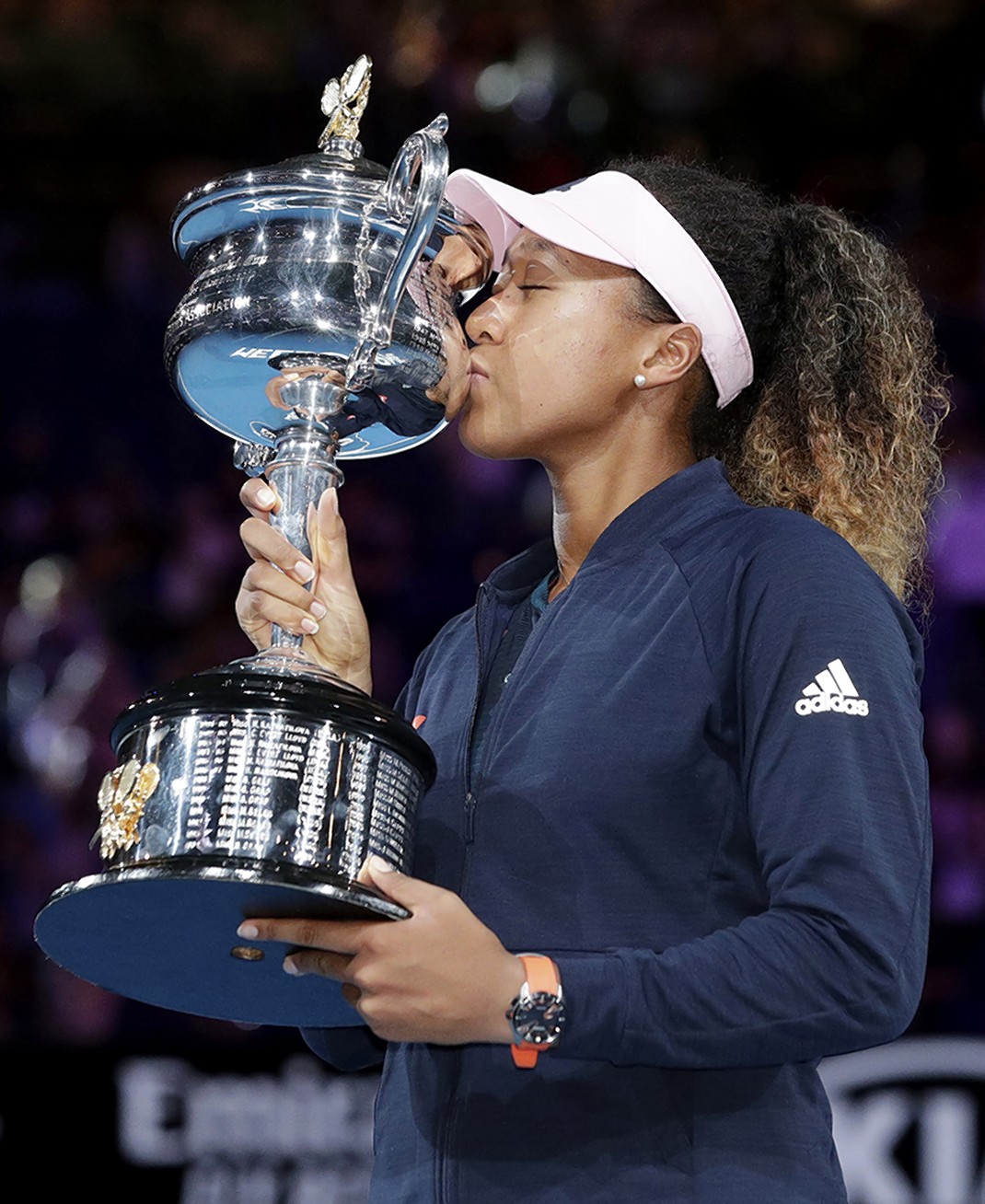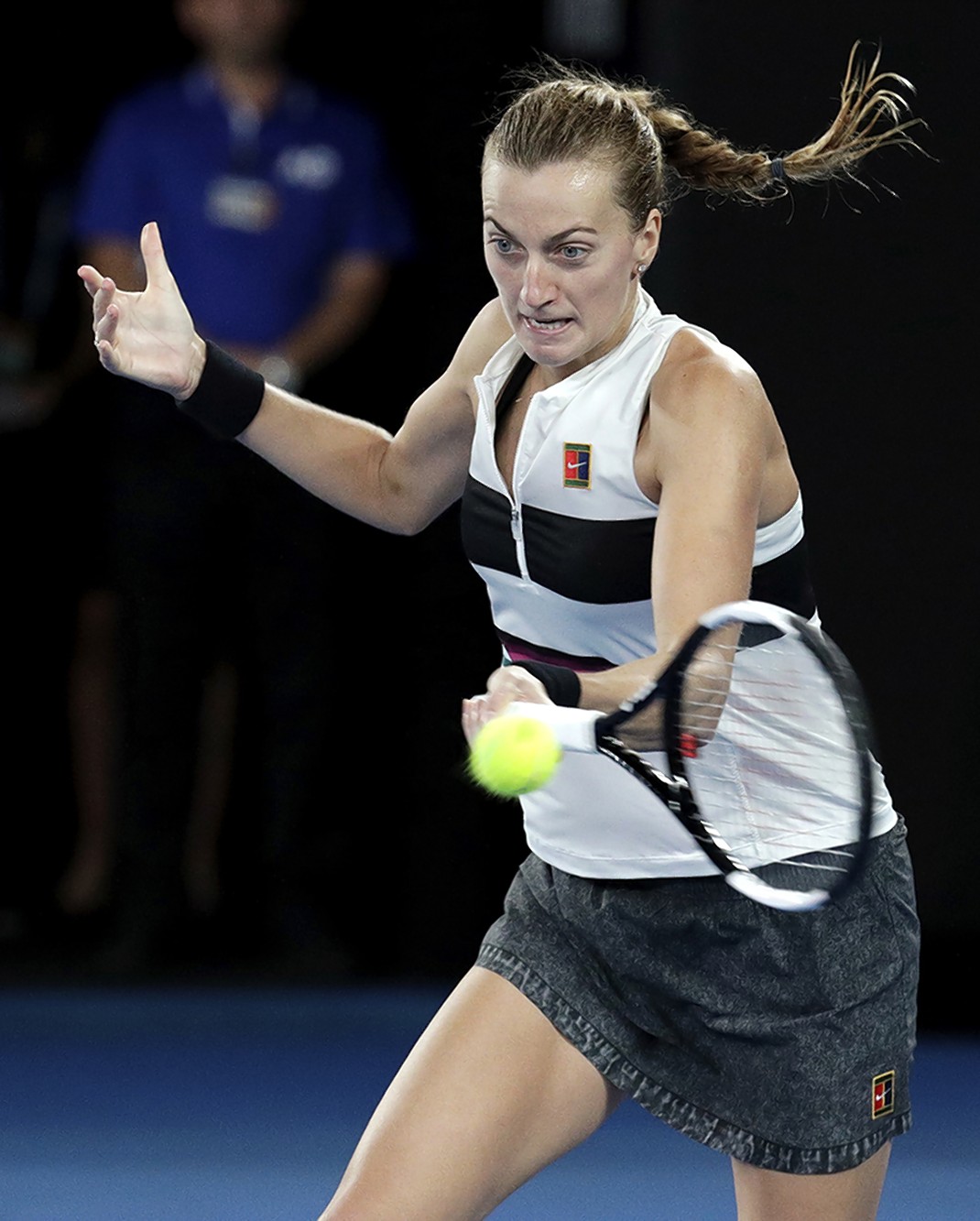MELBOURNE, Australia - So close to victory, Naomi Osaka suddenly was letting the Australian Open final slip away.
Three championship points? Gone.
A sizable lead? Soon all gone, too.
She was playing poorly. She yelled at herself. Slammed a ball. Tugged at her visor's pink brim. Trudged to the locker room between sets with a towel draped over her head.
And then, after returning to the court, Osaka turned it all around just as quickly as she had dropped 23 of 27 points. Refocusing and reasserting herself, Osaka edged Petra Kvitova 7-6 (2), 5-7, 6-4 on Saturday night to win her second consecutive Grand Slam title.
"I felt like I didn't want to have any regrets," Osaka said. "I think if I didn't regroup after the second set, then I would have looked back on this match and probably cried or something."
On Monday, Osaka will rise to No. 1 in the WTA rankings. At 21, she will be the youngest player to do so in nearly a decade; Caroline Wozniacki was 20 when she first ascended to that spot in 2010.
"Amazing achievement," said the 28-year-old Kvitova, a two-time Wimbledon champion. "Definitely she is a great one. We'll see what the future will bring."
Osaka added the Australian Open trophy to the one she collected in a U.S. Open final last September that forever will be remembered for the way runner-up Serena Williams was docked a game after arguing with the chair umpire.
Unlike that night in New York, there was no jeering from a confused crowd at Melbourne Park. No controversy. No chaos. No sharing the spotlight.
Clearly marking herself as the bright new star of the tennis universe, Osaka is the first woman to win two major championships in a row since Williams picked up four straight across the 2014 and '15 seasons.
It almost didn't happen, however. Osaka held three match points in the second set at 5-3, love-40 as Kvitova served. Not only was Osaka unable to close it out, she completely lost her way.
Kvitova rallied to make a match of it, reeling off five games in a row to take the second set and go up 1-0 in the third. At that point, Kvitova would say later, she figured it was bound to keep going her way.
"In the end," she said, "it wasn't."
After Kvitova double-faulted to offer up a break point at 1-all, Osaka converted it with a cross-court backhand winner. There was still more work to be done, of course, and some additional drama when it began raining at the changeover right before Osaka tried to serve for the match at 5-4 in the third set.
This time, Osaka would not falter. She would not let this lead disappear.
"I knew that Petra couldn't keep it up for that long if Naomi could just manage those emotions," said Osaka's coach, Sascha Bajin, "and she did that beautifully."
Osaka was born in Japan - her mother is Japanese, her father is Haitian - and she moved to New York at age 3. Now she's based in Florida and has dual citizenship. Osaka already was the first player representing Japan, female or male, to win a Grand Slam singles title. Now she's about to be the first to top the men's or women's rankings.
She will replace Simona Halep, who has been in the highest spot since late last February - and also was No. 1 from early October 2017 to late January 2018 before having her run interrupted by Wozniacki's month on top - but hasn't advanced beyond the fourth round at a Grand Slam since winning the French Open last spring.
And to think, a year ago, Osaka was ranked 72nd. What a climb. What a quick climb.
Kvitova was playing in her first Grand Slam final since winning Wimbledon in 2014 - her first title at the grass-court major came in 2011 - and the first since she was stabbed in the hand by an intruder at her home in the Czech Republic a little more than two years ago.
Kvitova needed surgery, missed the first 4 1/2 months of the 2017 season and couldn't be sure she'd ever get back to the top of tennis.
"You've been through so much," Osaka told Kvitova during the trophy ceremony. "I'm really honored to have played you in the final of a Grand Slam."
On a somewhat cloudy, rather comfortable evening, with only a slight breeze and the temperature around 75 degrees, both women hit the ball as hard as can be. Exchanges were mostly at the baseline and filled with flat, powerful groundstrokes that barely cleared the net and made retrieving and replying as much about reflexes as anything.
Points were swift and blunt; of 86 in the first set, only four lasted nine strokes or more. There was plenty of strong serving, clean hitting and good movement. Here's one measure of how even it was: Each finished with 33 winners.
It was Osaka who was the first to get ahead, tearing through the tiebreaker by grabbing five points in a row - four via winners - to go up 5-1. When Kvitova sailed a backhand wide moments later, ceding a set for the first time all tournament, Osaka pumped her fist and screamed, "Come on!"
How pivotal was that moment? Kvitova had won her past 22 Grand Slam matches after winning the first set. Osaka, meanwhile, entered the day having won 59 matches anywhere after going up by a set.
When Osaka broke to lead 3-2 in the second set, then got to 5-3, the outcome seemed to be a foregone conclusion. Turned out, that wasn't the case. Not at all.
All that really matters, of course, is that Osaka righted herself in time to win.
"It didn't really take that long," she said. "I didn't have a choice."
Despite her youth, Osaka didn't quite feel the same way about her rise to success at the top level of the women's game.
"I mean, to me, it doesn't. I guess looking from the outside, from your guys' view, it does," Osaka said. "For me, every practice and every match that I've played, it feels like the year is short and long at the same time. But I'm aware of all the work that I put in. I know all the sacrifices that every player does to stay at this level.
"I mean, in my opinion, it didn't feel fast. It felt kind of long."
The next major is four months away. Osaka has never been past the third round in her three appearances at the French Open, but until last September, she had only been one round further at any Grand Slam - the 2018 Australian Open.
Before trying to extend her streak of major crowns, though, her more immediate goals are winning the upcoming hard-court tournaments in Indian Wells, California, and Miami.
"The way the tennis world is, there's always the next tournament, the next Slam, and we all just want to keep training hard and winning more," Osaka said. "So I'm not really sure if I'm satisfied."


